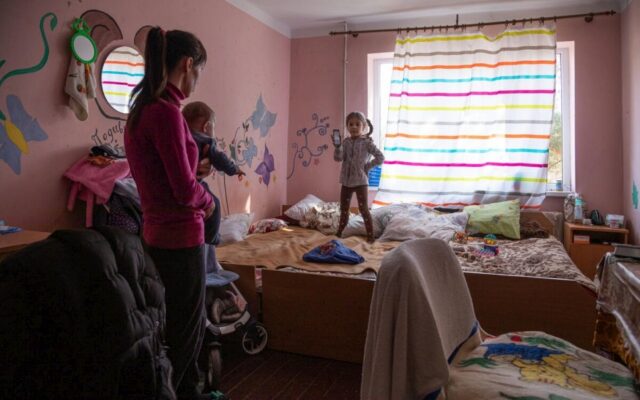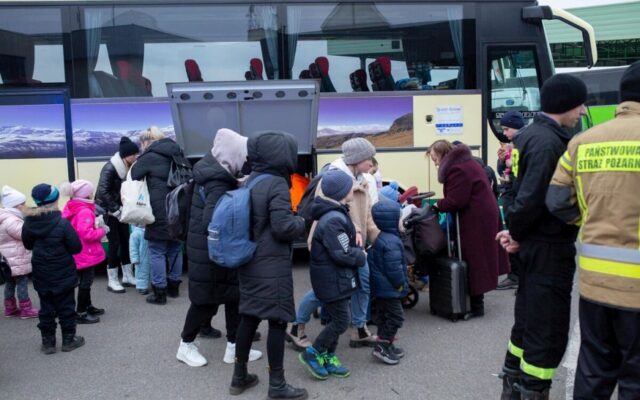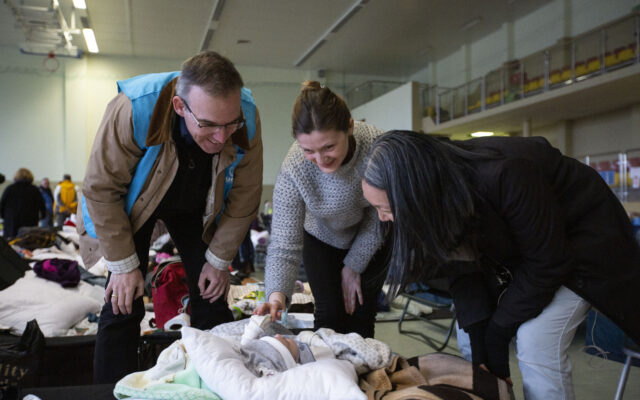Photo: © UNHCR/Anatol Matasaru
A blog post from Kisut Gebreegziabher of the UNHCR Emergency Response Team.
I’m working with UNHCR on the border between Ukraine and Moldova. At the time of writing, around 3 million refugees from Ukraine have fled the country into neighbouring countries like Moldova — however, by the time you are reading this, I know that this number will be even higher.
Most of the refugees who have entered the Republic of Moldova and other neighboring countries are women and children. I have seen fathers hug their children and partners at the border before turning back to Ukraine. It is a heartbreaking sight.
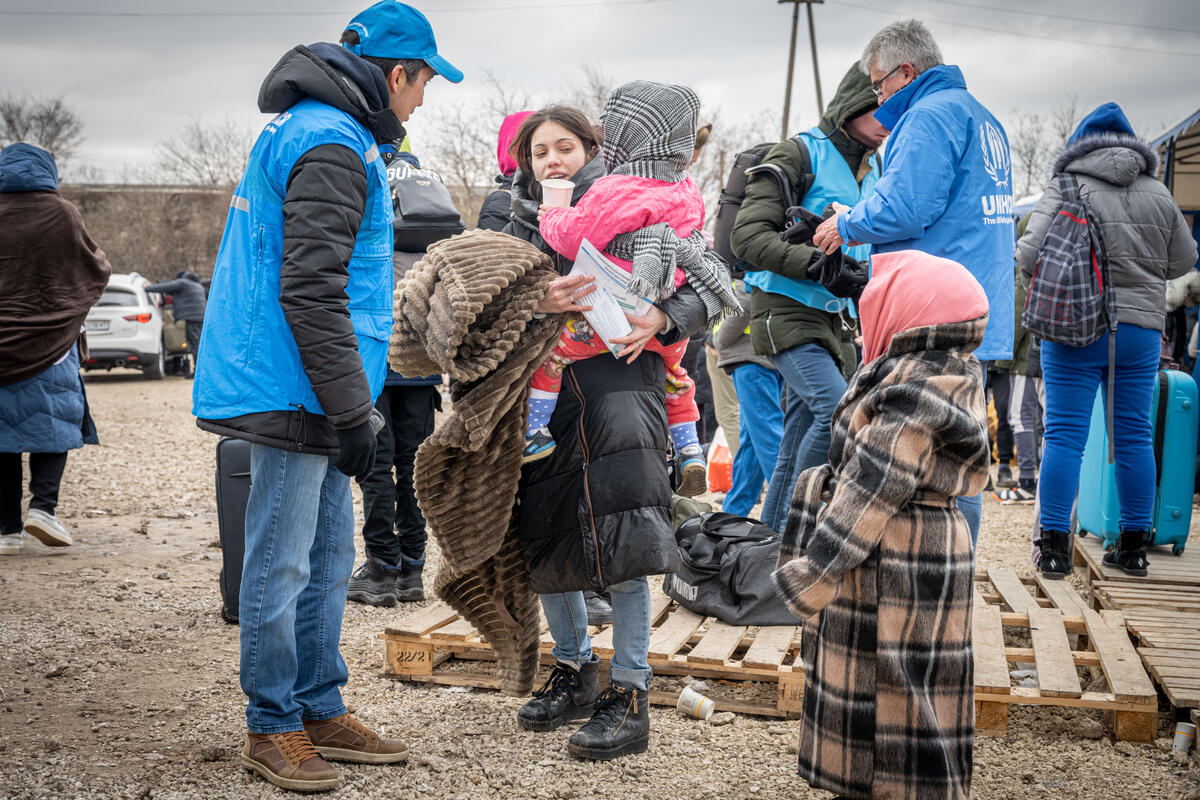
My colleagues Erno Simon, Public Information Associate and Batyr Sapbyiev, UNHCR Romania Representative, offering advice to a refugee at Palanca border crossing in Moldova. © UNHCR/Mihai von Eremia
I’ve worked for UNHCR for 17 years and have seen first-hand our response to huge emergencies: the terrible crisis in northern Ethiopia in the past two years, as well as when South Sudan, the world’s youngest nation, erupted in violence at the end of 2013. I’m now here in Moldova as a member of UNHCR’s Emergency Response Team.
UNHCR has extremely strong emergency preparedness measures, and we are always monitoring in case an emergency is about to break–so I was already on my way to the region before the crisis hit the headlines. Around 100 of my UNHCR colleagues were already working inside Ukraine, and another 100 more in the region at the start of this year. Now, dozens more of my fellow Emergency Response Team members are supporting them to strengthen our work in the face of what has been called the fastest-growing refugee crisis since World War II.
On the ground in Moldova
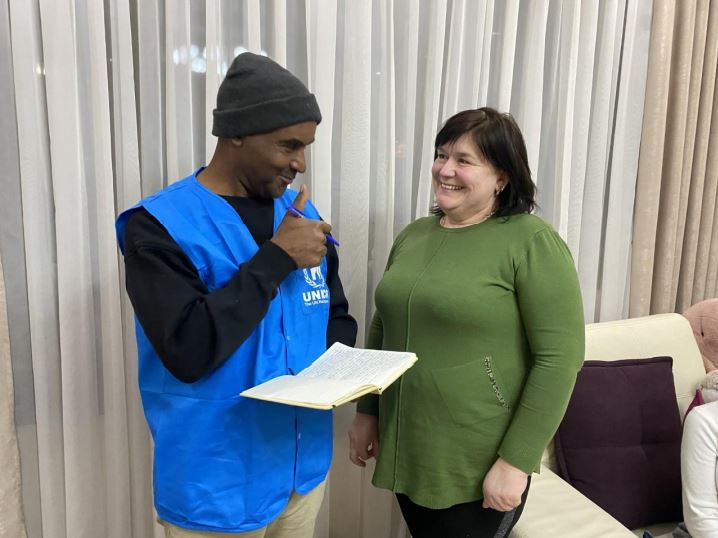
This is me speaking with Tamara about what motivated her to host refugees from Ukraine in her home.
Despite the scale of this emergency, I’ve been inspired by the courage of the people I have met and the generous welcome they are receiving in Moldova. On 14 March in the capital Chișinău, I met with Tamara and her husband Anatolie. This couple are generously hosting two families of refugees from Ukraine – 11 people – in their little three-bedroom house. They have a combined monthly income of EUR900 but are still showing incredible hospitality in their time of need.
“We don’t have much to spare, but these people are finding themselves in a much worse situation than us – we need to share what we have with them.”
“We don’t have much to spare, but these people are finding themselves in a much worse situation than us – we need to share what we have with them”, said Tamara, adding, “This was possible thanks to the support provided by our family and friends. Times like this help you to know who your true friends are”.
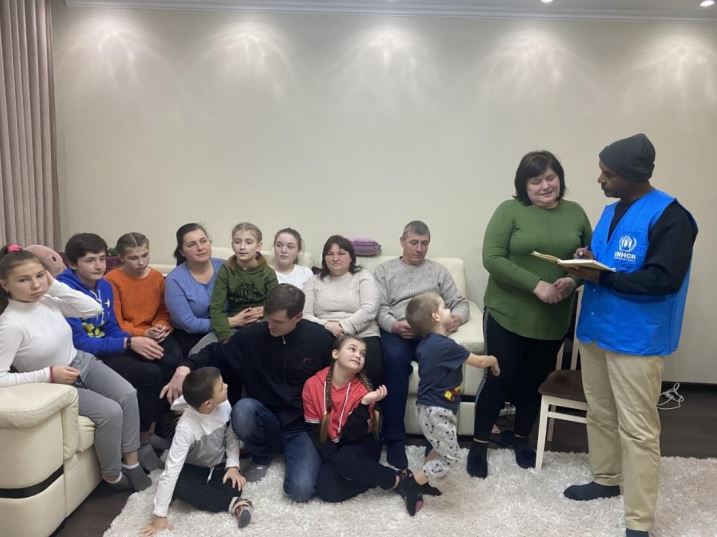
Me speaking with Tamara and the two refugee families who have received a warm welcome in Tamara’s home.
The families staying with Tamara and Anatolie told me they were overwhelmed by the “love and attention” they have received from their host family. And this group is not the first that they have hosted; other families have already come and gone on to longer-term housing. There is so much uncertainty that comes with being a refugee—the hospitality of people like Tamara makes it easier for families to stop and think about their next steps.
What happens when a refugee crosses the border?

My colleague Erno providing information and advice to a refugee from Ukraine at the transit centre in Palanca, Moldova. We assisted one group of refugees to move from Moldova to Romania, where there is more capacity to host them. © UNHCR/Mihai von Eremia
One thing I am often asked is “what happens to refugees once they cross the border into a new country?” Here in Moldova, borders have remained open for all of those fleeing Ukraine. This is a real step of solidarity and compassion with people who are in their darkest hour.
A transit centre has been established at the border by the authorities, where our team is providing information, counselling and psychosocial support to refugees who are newly arrived into Moldova. Transit centres like these are used as temporary shelters and mean that people arriving from Ukraine have a safe place to stay in the short term while more suitable, long-term accommodation is found.
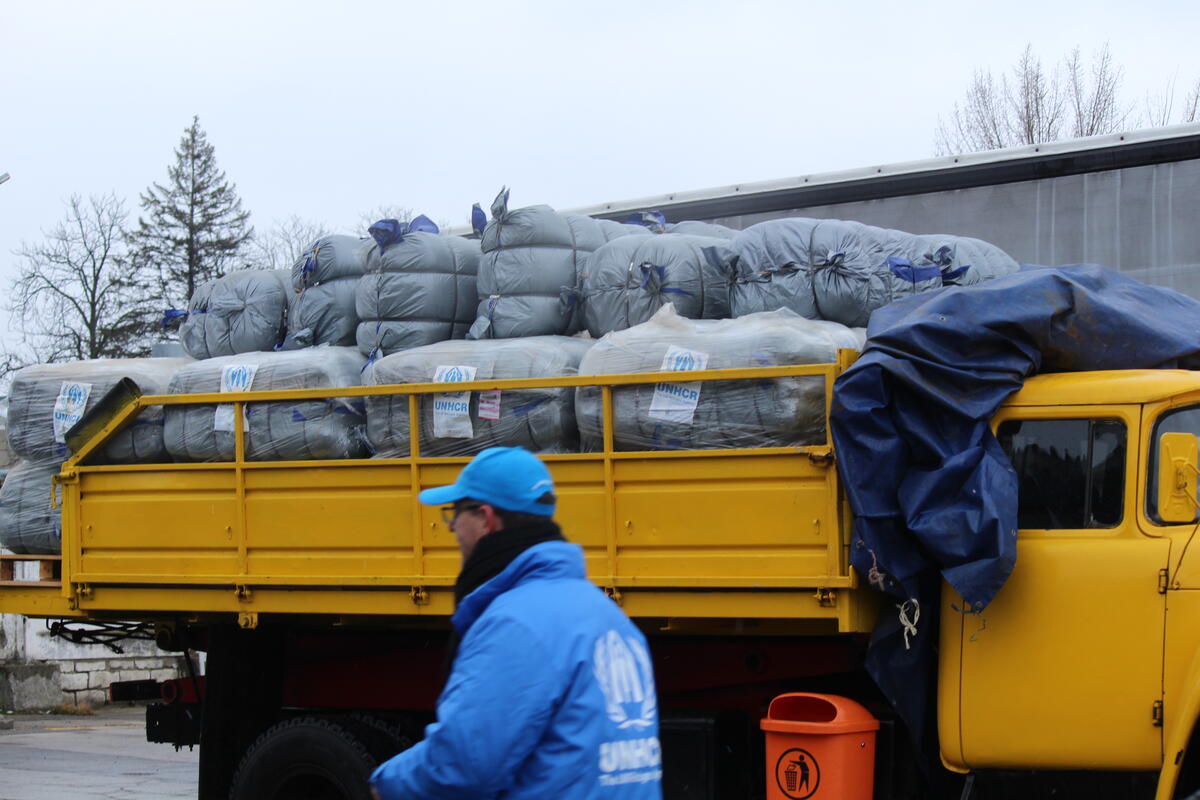
The first humanitarian airlift of supplies arrived in Moldova on 2 March with thousands of thermal blankets arriving at Palanca border crossing to keep refugees warm. © UNHCR/Anatol Matasaru
We’re providing essential supplies too. Our first humanitarian airlift arrived on 2 March with around 8,000 thermal blankets, and we immediately shipped thousands of these to the border so that refugees can be provided with them as they enter Moldova.
A few days later, a six-truck convoy arrived in Moldova with hundreds of family tents, thousands of sleeping mats and much more like solar lamps, face masks and baby kits. Thanks to your support, we’ve got even more convoys and airlifts scheduled in the next few days. We’re also rushing to set up warehouses where we can store everything before it gets distributed to people in need.
How is UNHCR helping?

Inside one of the reception centres we have set up with our partners at the border in Moldova, to welcome refugees with some hot tea, coffee and food.
My colleagues are on the ground across the region – and more of our expert emergency responders are coming to help. In Poland, we are at border crossing points speaking with people directly to understand their individual needs. In Romania, we are providing counselling and assistance to people crossing the border with information on how to seek asylum including a 24/7 phone line.
Across the whole region, we are rolling out emergency cash payments to refugees to allow them to purchase essentials like food and medicine. And within Ukraine, my colleagues are delivering aid wherever and whenever possible – shelter support, food and clothing when the security situation allows—and we will continue to do so.
To learn more about the situation in Ukraine, please visit this page.
To make a donation to help those fleeing war in Ukraine, please visit this page.


